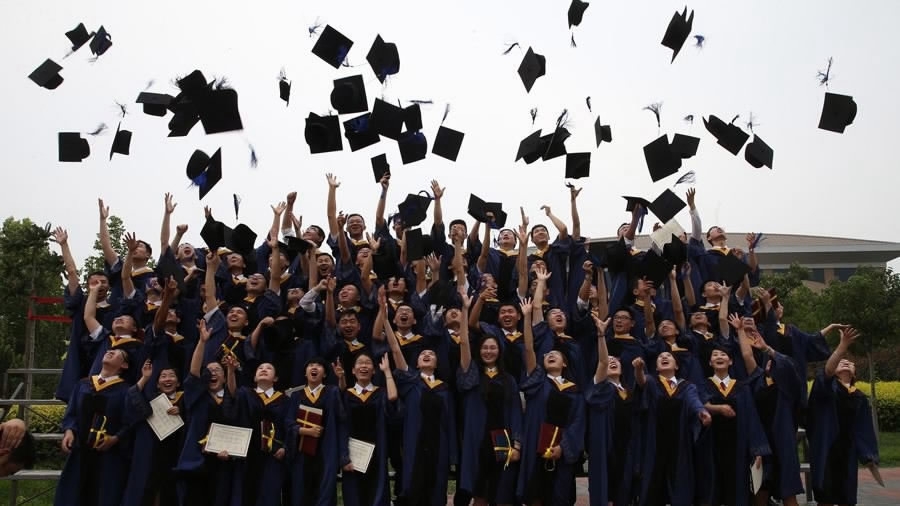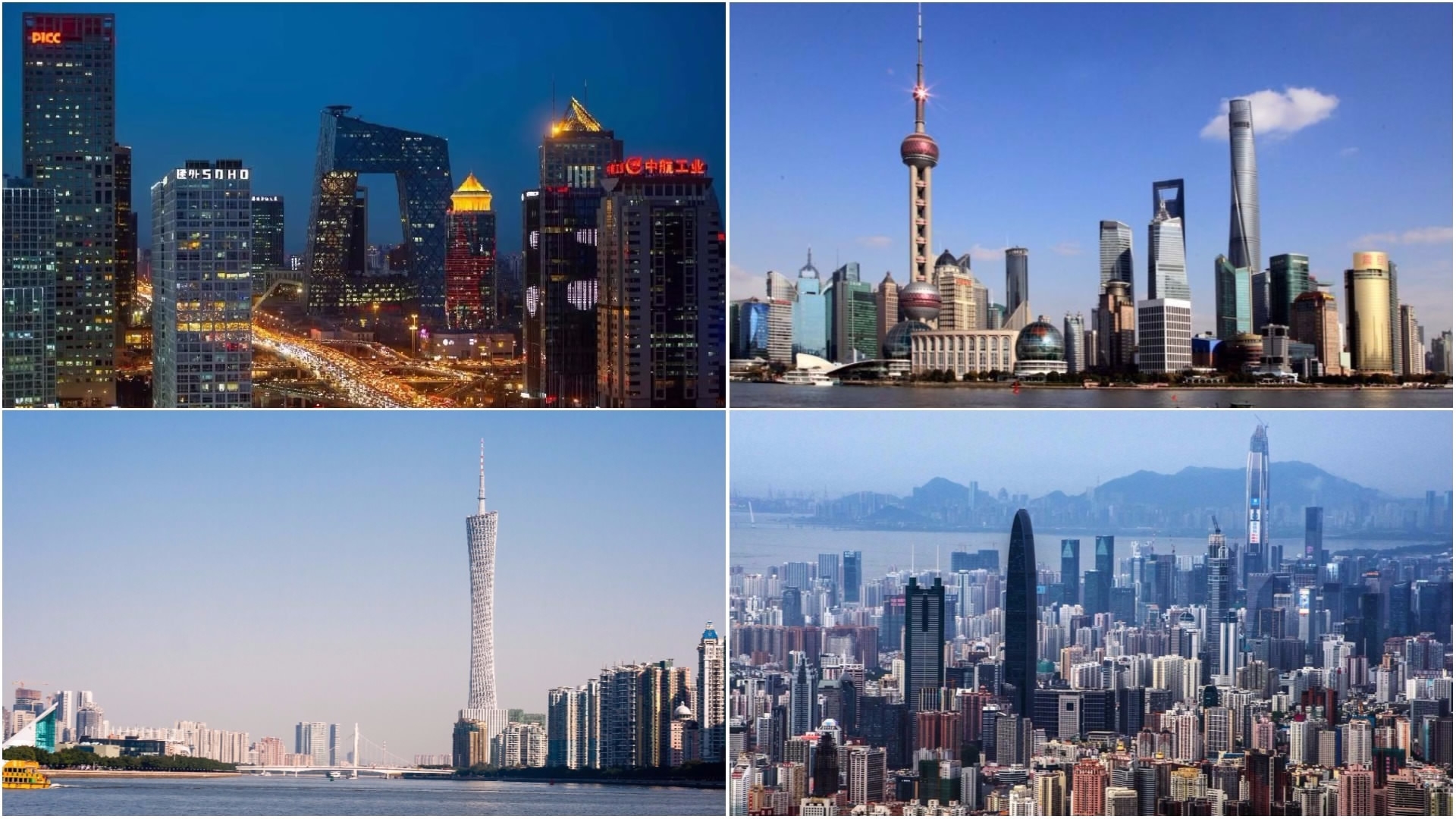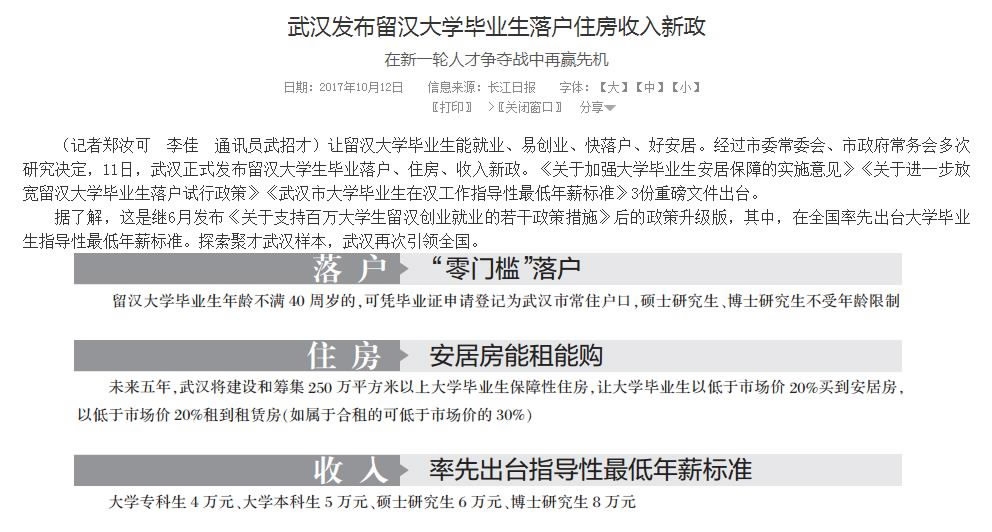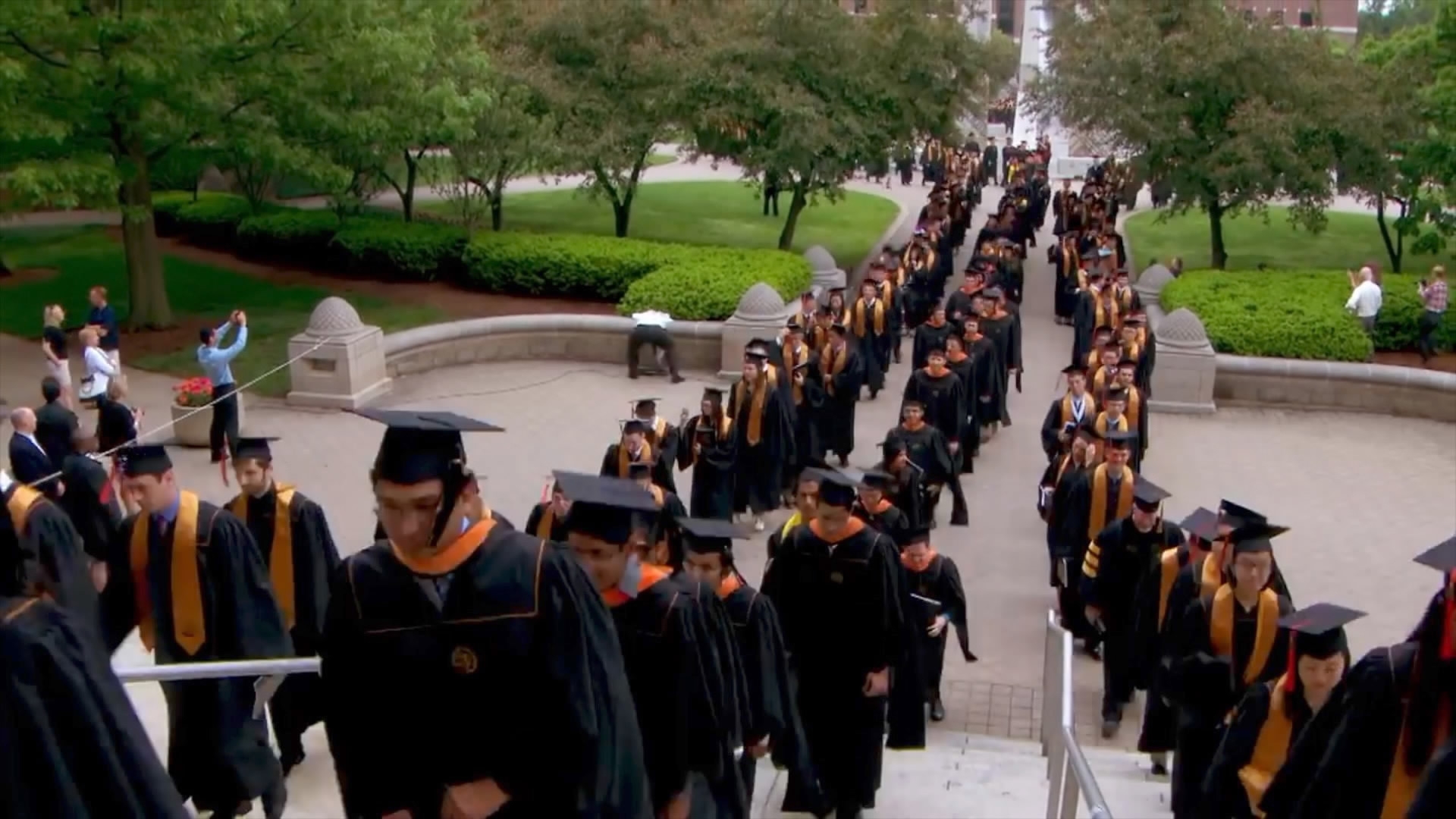
Culture
22:01, 15-Oct-2017
More overseas-educated Chinese return home for jobs, but what's the situation?
By Li Bin

China has seen a growing number of overseas-educated Chinese coming home for a career. In 2016 alone, the number stood at 432,500, up 5.72 percent from previous year and 58.48 percent from that in 2012.
The once elite group is now facing mounting pressure. But what is the situation really like?
A survey jointly released Saturday by China's major job search websites, 51Job and yingjiesheng.com, and a study abroad agency, EIC Education, provided a sneak peak into the status quo.
Emerging cities and popular industries
About 18.6 percent of respondents returning from overseas chose to work in Beijing, followed by Shanghai, Guangzhou and Shenzhen with 15.6 percent, 13.4 percent and 12 percent respectively, according to the survey.

Beijing, Shanghai, Guangzhou and Shenzhen remain attractive to overseas returnees. /CGTN Photo
Beijing, Shanghai, Guangzhou and Shenzhen remain attractive to overseas returnees. /CGTN Photo
The four cities grabbed nearly 60 percent of the total share. However, emerging cities are catching up, with Hangzhou, Wuhan, Nanjing, Chengdu and Suzhou – or the so-called "New First-tier Cities" – striving to appeal to talents by offering preferential policies.
Wuhan, for example, has laid out multiple financial supportive policies to lure the talents. The municipal government has announced it will build 2.5 million square meters' worth of houses to accommodate college graduates with the rent 20 percent lower than market prices. Local government also guarantees 50,000/60,000/80,000 yuan in pension to students with a Bachelor's degree, Post-graduate degree or Doctorate degree respectively once they have secured a contract there.

Wuhan offers preferential policies to lure talents. /Screenshot via wh.gov.cn
Wuhan offers preferential policies to lure talents. /Screenshot via wh.gov.cn
The survey also found that Internet, finance, real estate, education and training, and machinery manufacturing sectors have stronger demand for returnees.
Four major sources of overseas returnees
Overseas returnees from the UK accounted for 24.5 percent, the highest of all countries, followed by the US, Australia and Japan with 21.2 percent, 17.9 percent and 8.6 percent respectively.
The high ratio of returnees from the UK was attributed to the shorter school year for post-graduates – usually one year compared to three years in the US – and the difficulties of getting a job in the country as an international student, according to the survey.
Top 10 most favorable overseas-educated graduates are from the US, the UK, Australia, Germany, Japan, Canada, France, Singapore, South Korea and Russia.
Expectation clashes with reality
Nearly 50 percent of respondents have done some form of career planning before studying abroad or during their study abroad, the survey said.
However, the reality has, to an extent, overshadowed the returnees' expectations and judgments.

Bringing an overseas experience home is a top option for Chinese students abroad. /CGTN Photo
Bringing an overseas experience home is a top option for Chinese students abroad. /CGTN Photo
79.3 percent of the respondents thought they lost the edge in finding the jobs, mainly due to unfamiliarity with domestic job market and corporate demands as well as the bad timing between graduation and hiring season.
Domestic employers, however, had different opinions. They thought the returnees often overvalued themselves and asked for salaries that are way higher than their real abilities. Lack of work experience was also one of the main factors resulting in their failures in landing a job.
China is currently in the middle of its biggest ever influx of returning overseas-educated graduates.
According to another survey released on August 30 by the Center for China and Globalization (CCG), a major Chinese think tank, more than 2.65 million Chinese who studied overseas had returned to China as of the end of 2016.
Source(s): Xinhua News Agency

SITEMAP
Copyright © 2018 CGTN. Beijing ICP prepared NO.16065310-3
Copyright © 2018 CGTN. Beijing ICP prepared NO.16065310-3